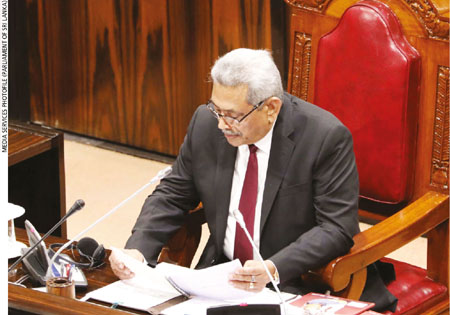SHARED RESPONSIBILITY
COORDINATING THE RESPONSE
Share responsibility in tackling the coronavirus crisis – Dr. Jehan Perera

Despite the economic costs, the government made a timely decision to tackle the COVID-19 threat. It sought to restrict the mobility of people and their interactions to slow the rate of infection. Questions for the administration relate to its willingness to pay the political and economic price that may be required.
The battle against the coronavirus has become more protracted, requiring greater sacrifices than envisaged. And this has led to growing tensions in society especially in hotspot districts including Colombo as the curfew was extended and daily wage earners found it more difficult to sustain their families.
There’s been little or no manifestation of dissent against the serial extension of curfew. Due to intense media coverage, the gravity of the crisis has been embedded in the public consciousness. People appreciate the government’s concerns about limiting the spread of the virus.
However, the challenge of physical survival has come to the fore. Those who had little savings and are daily income earners faced a crisis. To sustain themselves, they were forced to rely on relatives living nearby or patrons to offer support during this time of crisis.
Many persons of goodwill and means have generously stepped forward to help. But reliance on personal relations, goodwill and charity is not a substitute for the state’s commitment to meet the needs of the people.
There is a lacuna in this regard as the government is cash-strapped. Highlighting the extent of the crisis, former minister Dr. Harsha de Silva tweeted: “Of the eight million people employed in Sri Lanka, only three million get a monthly paycheque.”
He added that “1.7 million people rely on daily wages and 2.5 million people are self-employed. They are struggling to survive with the COVID curfew and no savings. [The] absolute poverty line is Rs. 5,000 a week for a family of four. [We] need cash transfers between eight and 20 billion rupees a week urgently.”
In this context, the Presidential Task Force proposed to convene a consortium of civil society representatives to form a humanitarian response where social service organisations will coordinate with the government’s divisional secretariats and other state officials.
The purpose is to respond to the emergency health, nutrition and medical needs of people in vulnerable sectors. Civil society organisations whose mandate is education and training oriented have attempted to switch work on the ground to delivering humanitarian aid, utilising networks of partner organisations and grassroots groups.
Despite the manifestation of shortcomings, Sri Lankan citizens must cooperate with state authorities. Many may believe that President Gotabaya Rajapaksa is the best leader to handle the present scenario. Under his leadership, the government has made maximum use of the military to handle the emergency situation.
The Sri Lankan military has the resources, training and experience to handle multiple crises. Moreover, the leadership provided to it by Rajapaksa during the war has instilled trust and respect for him among the people as this was reflected in the outcome of last November’s presidential election.
However, the government waited until after nominations closed for the general election to announce a national lockdown. Its determination to follow up with the nomination process would be due to the political advantage anticipated by holding the general election as soon as possible.
While Rajapaksa won the presidential election in November with a sizable majority, the parliament, which he dissolved prematurely, continues to represent the balance of political forces that existed in August 2015 when the last general election was held. So the administration appears reluctant to recall parliament to govern the country according to its own vision and plans.
The period ahead will be challenging. Meanwhile, the Election Commission bowed to the inevitable and postponed the general election from 25 April to 20 June although parliament was dissolved by the president on 2 March with no prospect of holding the general election on schedule.
With the country teetering on the brink of extra-constitutional rule, there’s a temptation to justify extra-legal action in a period of emergency. But the democratic system requires an elected president to be supported, checked and balanced by a democratically voted parliament.
This is not only a matter of checks and balances, but also sharing responsibility – and most importantly, upholding the stability of a democratic system in times of uncertainty.






Leave a comment